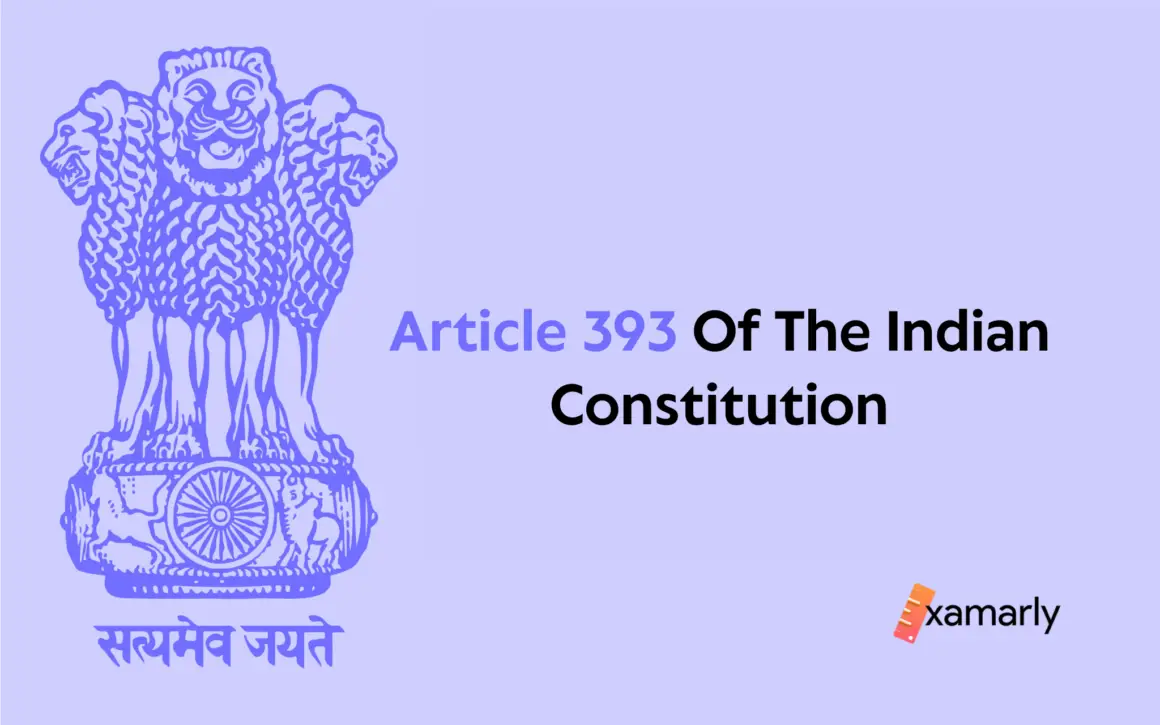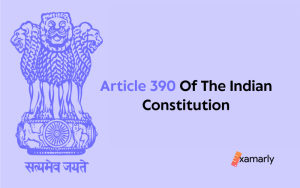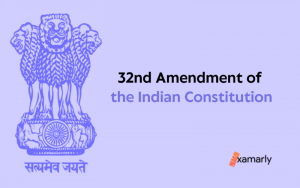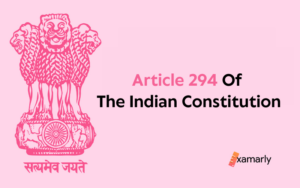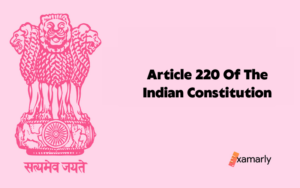Article 393 of the Indian Constitution deals with the short title in regards to the Constitution of India.
Let us have a close look on Article 393 of the Indian Constitution for a thorough understanding.
Article 393 Of The Indian Constitution – In Detail
Article 393 of the Indian Constitution is stated in PART XXII – SHORT TITLE, COMMENCEMENT, AND REPEALS section of the constitution.
It states that-
- The Constitution shall be known as the Constitution of India.
Previously, it was a draught article 313A in the 1948 draught of the Indian Constitution.
The Draft Constitution did not allow the Constituent Assembly to consider Draft Article 313A, which became Article 393 of the 1950 Indian Constitution.
This amendment took place on October 17, 1949.
It was mentioned in the Draft Article that the Constitution would be referred to as the “Constitution of India,” and that it would be accepted by the Assembly on November 26, 1949, which was approximately one week after the Draft Article was written.
On October 17, 1949, the Constituent Assembly accepted the Draft Article as a component of the Constitution without debating it.
Summary
Article 393 of the Indian Constitution mentioned about the nomenclature of the Indian Constitution being known/referred to as the Constitution of India.
You Might Also Like To Read: Article 394 Of The Indian Constitution.
FAQs Around Article 393 Of The Indian Constitution
Is Article 393 the shortest article of the Indian Constitution?
No.
Article 393 of the Indian Constitution is one of the shortest articles of the Indian Constitution along with Article 52, Article 63, and Article 214.
What does Article 393 of the Indian Constitution say?
According to the provisions of Article 393 of the Indian Constitution, the document in question is to be referred to as the “Constitution of India”.
Why was there a need for Article 393 of the Indian Constitution?
The need for Article 393 of the Indian Constitution was in order to provide a strong reference to the Indian Constitution in all legal, executive & judiciary terms.


